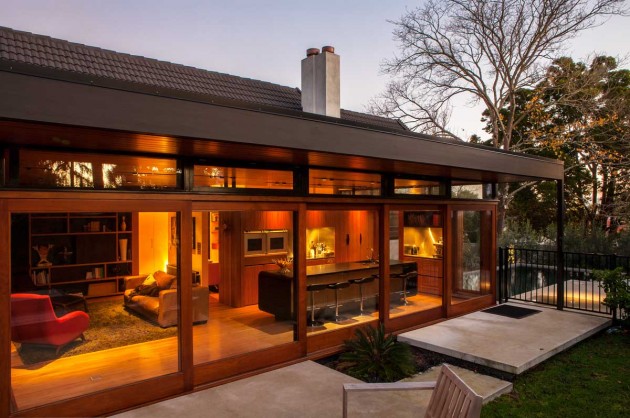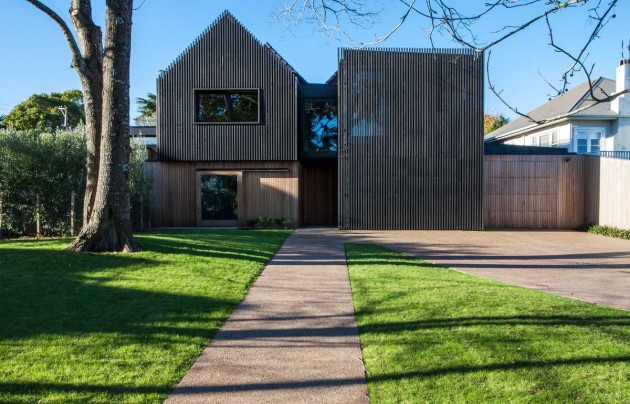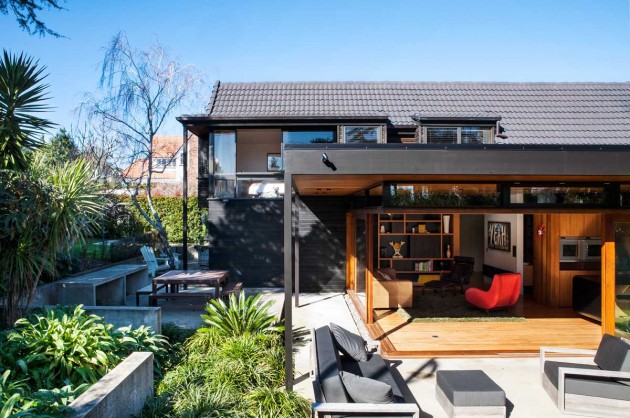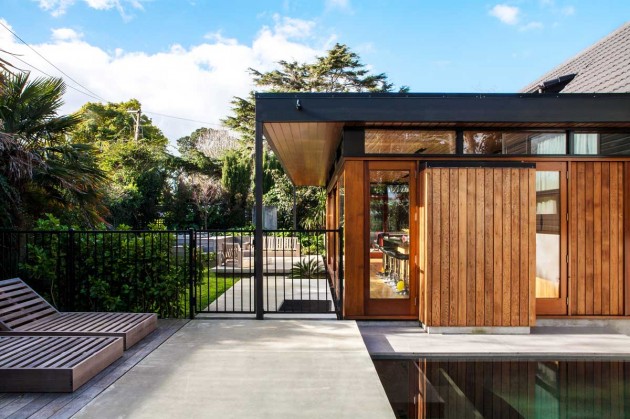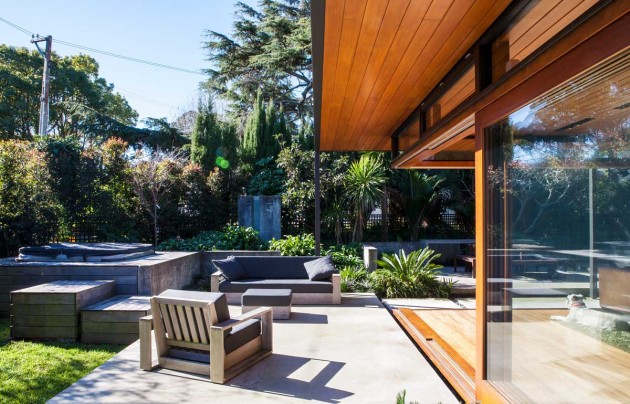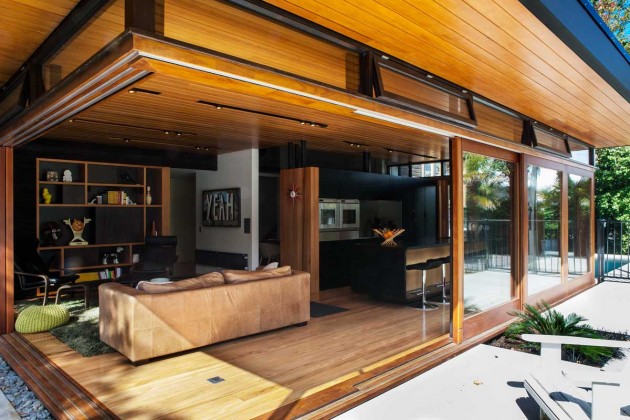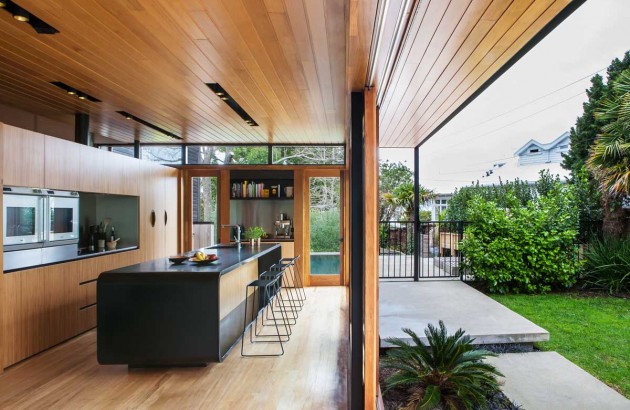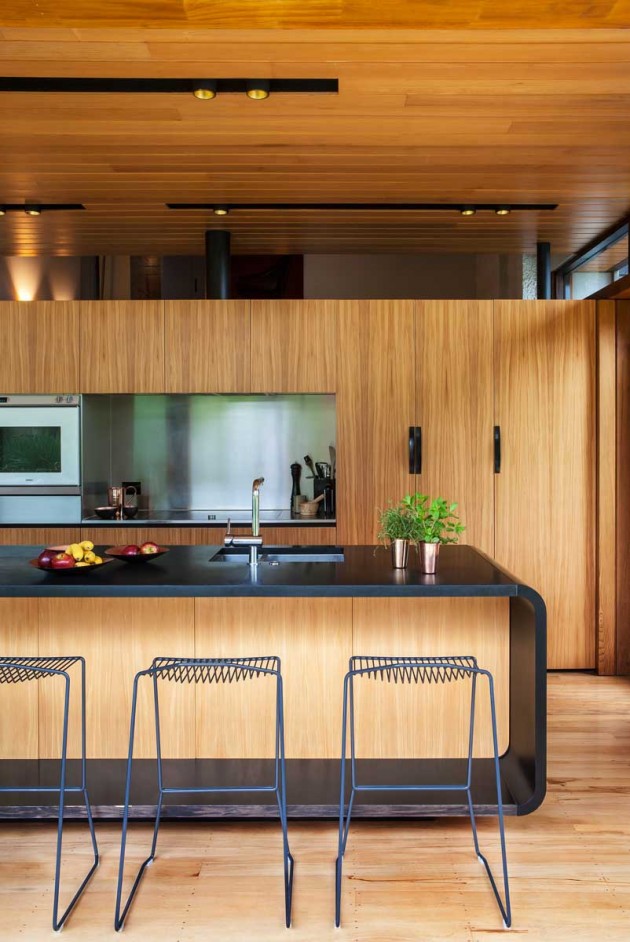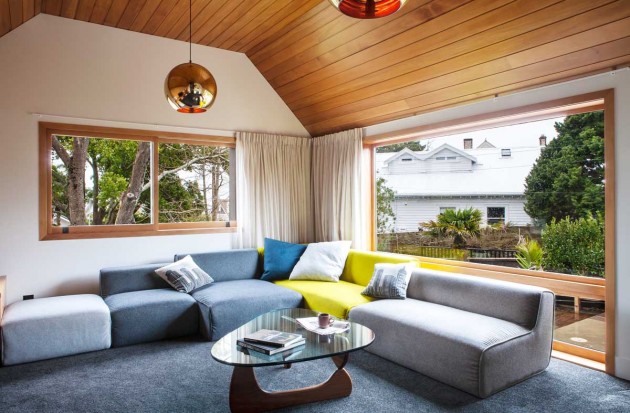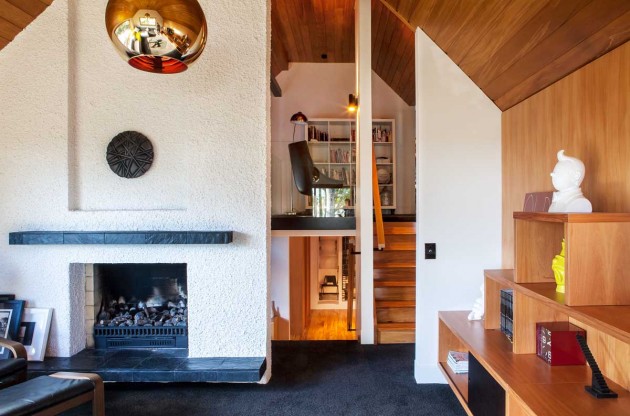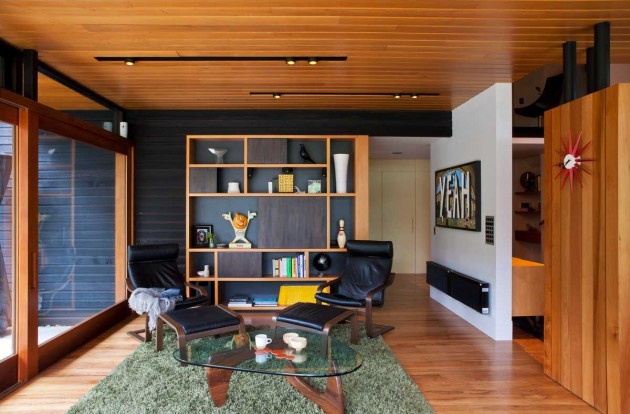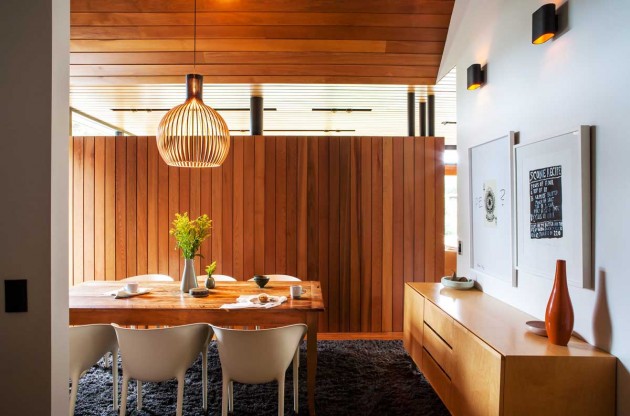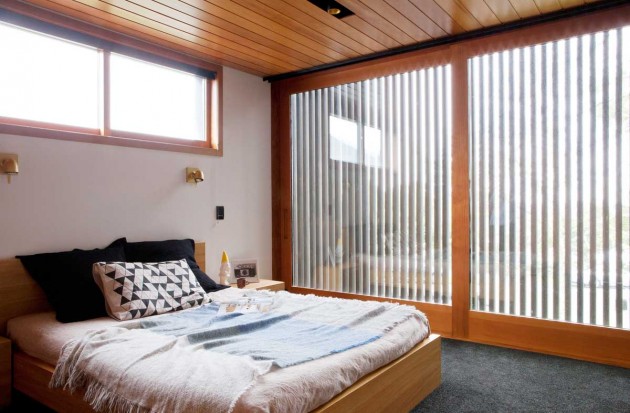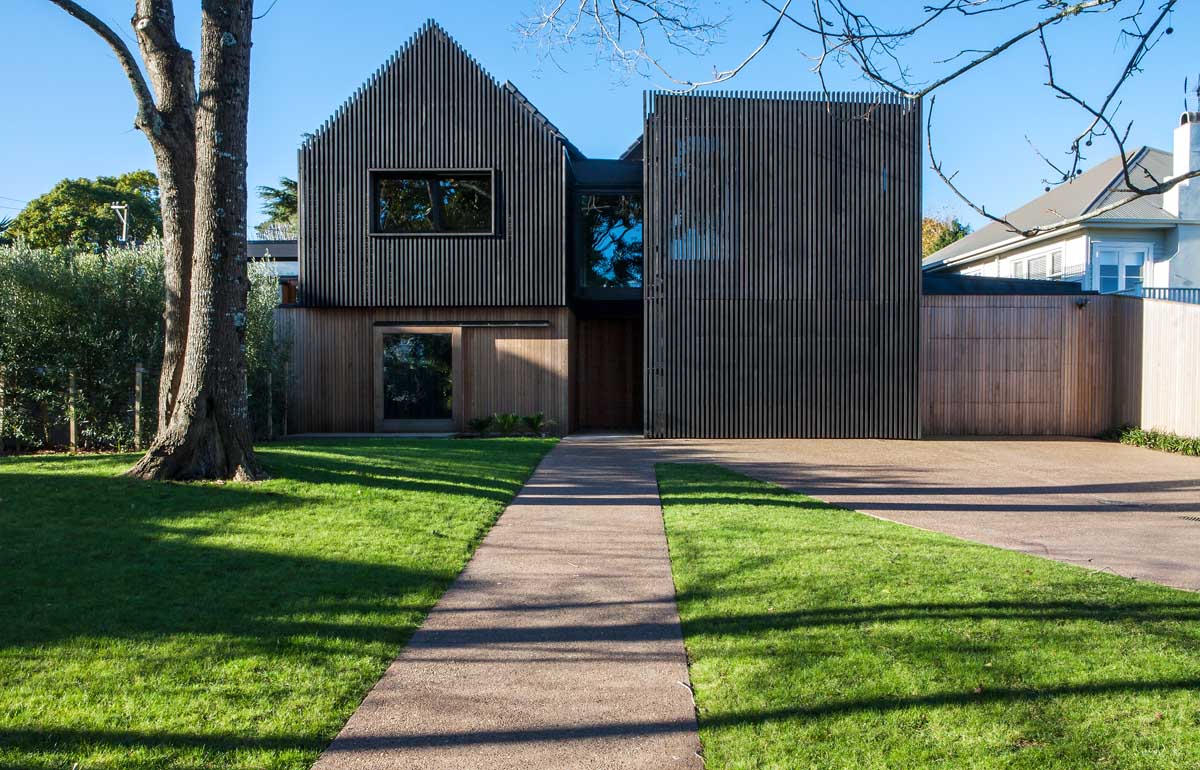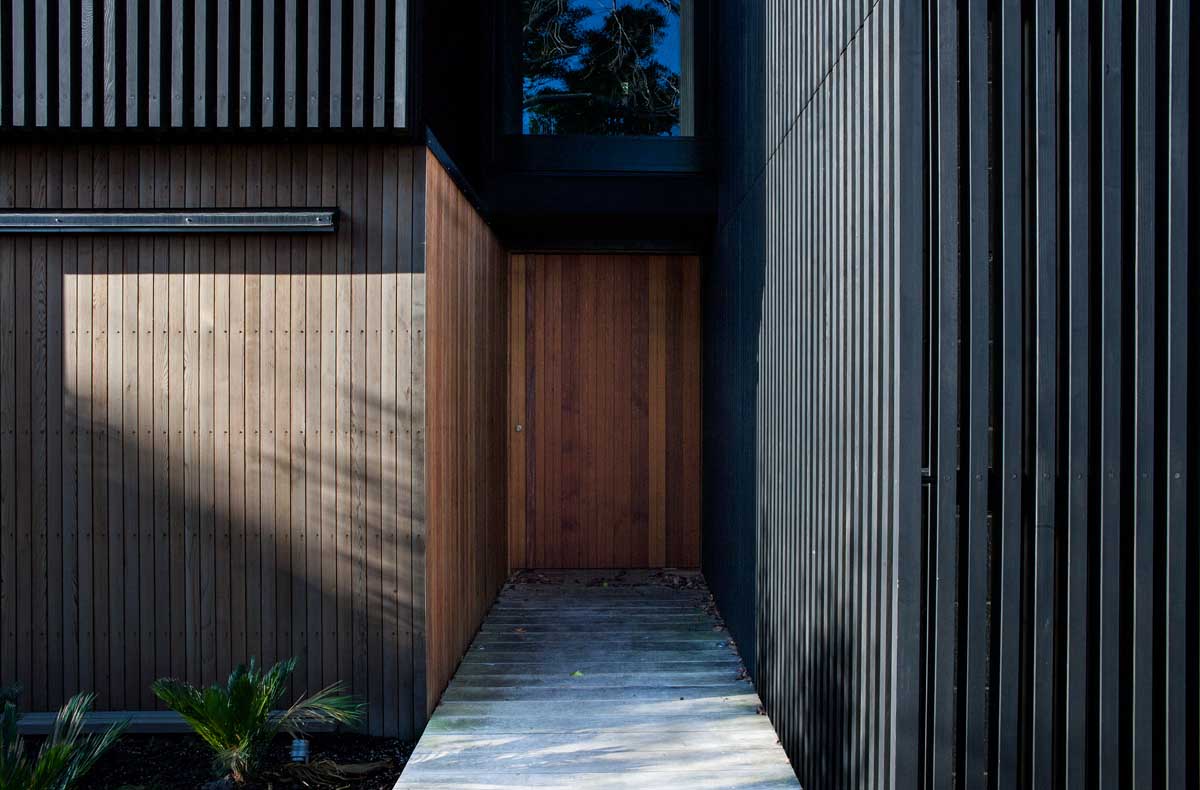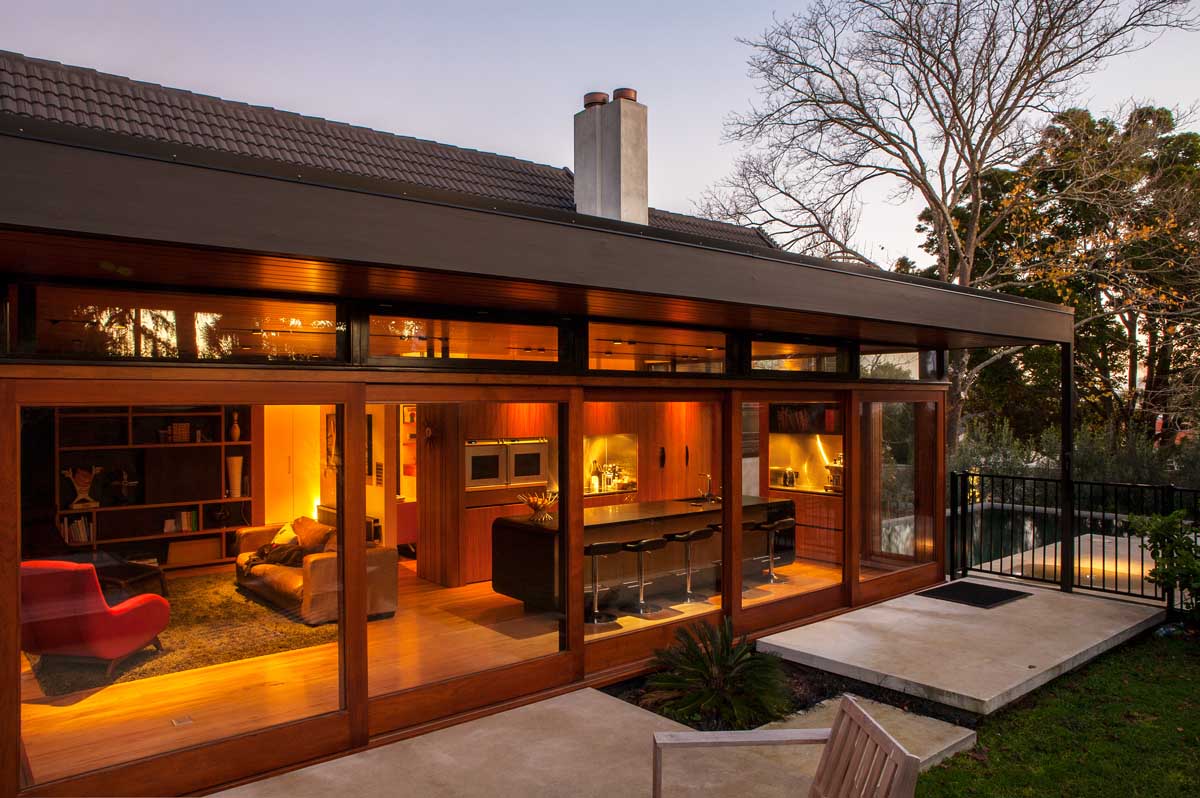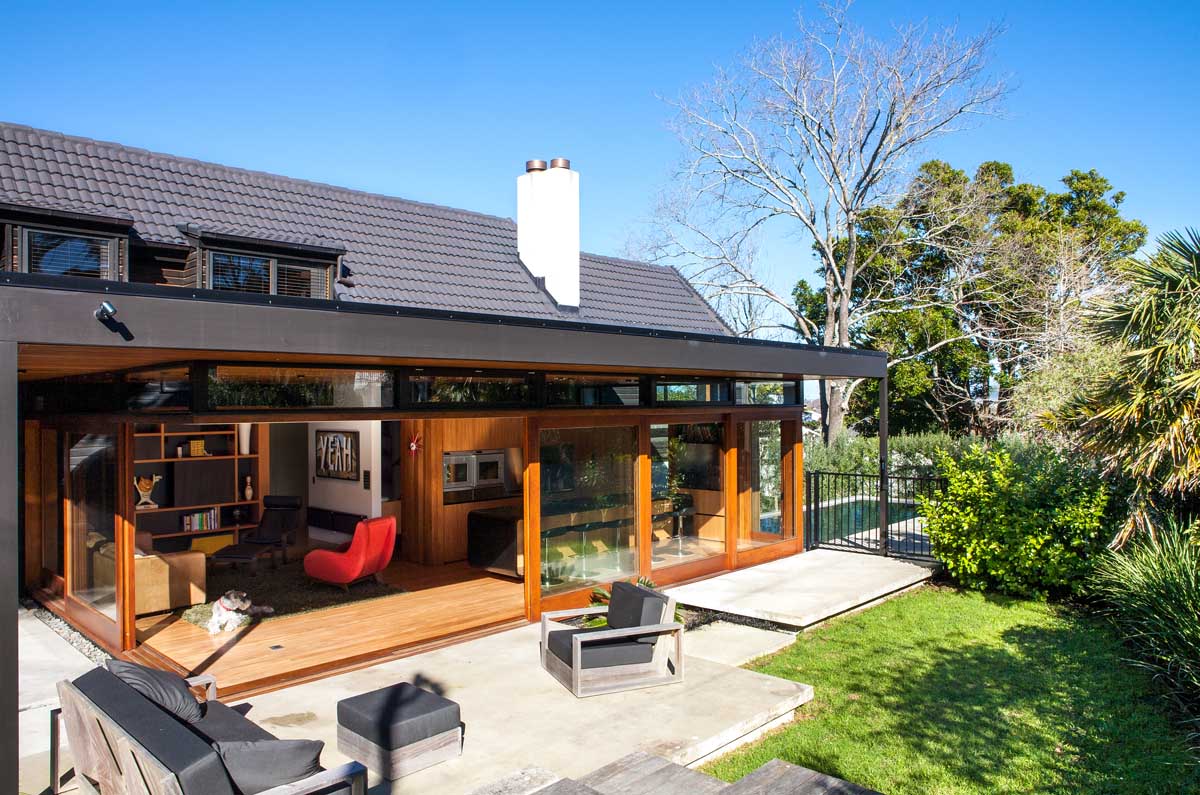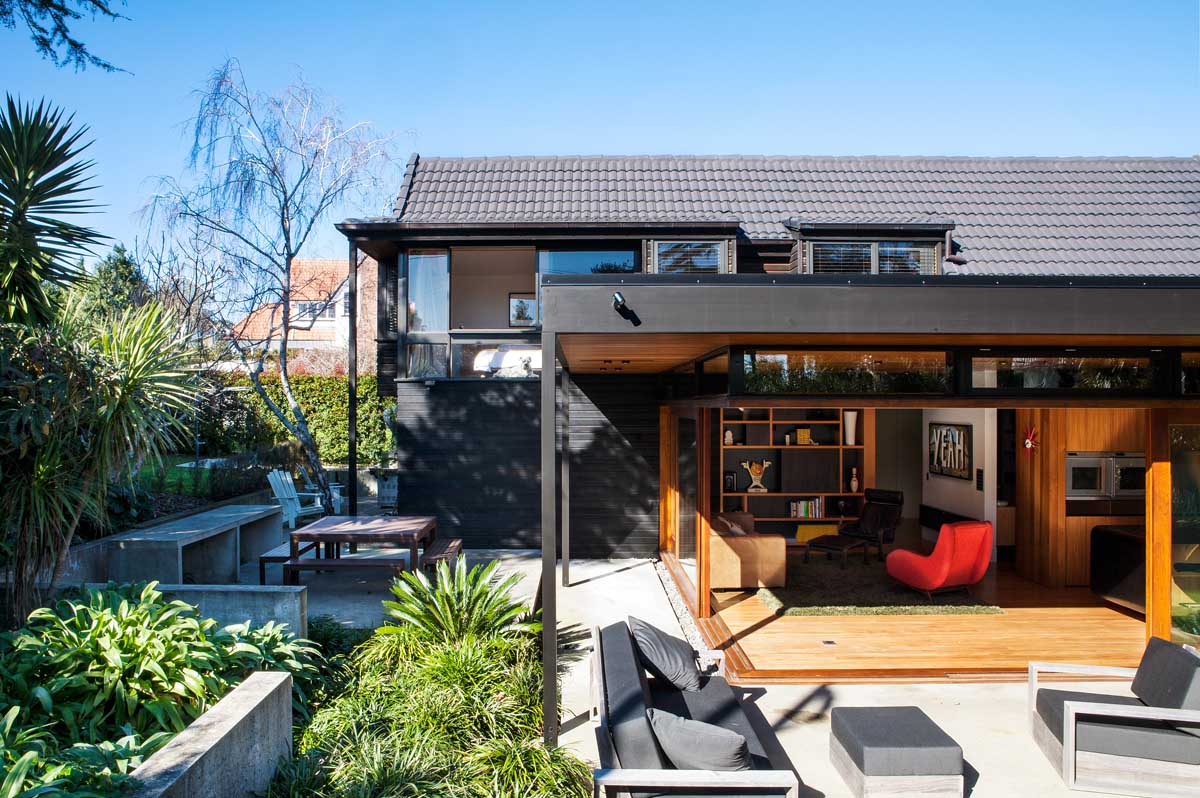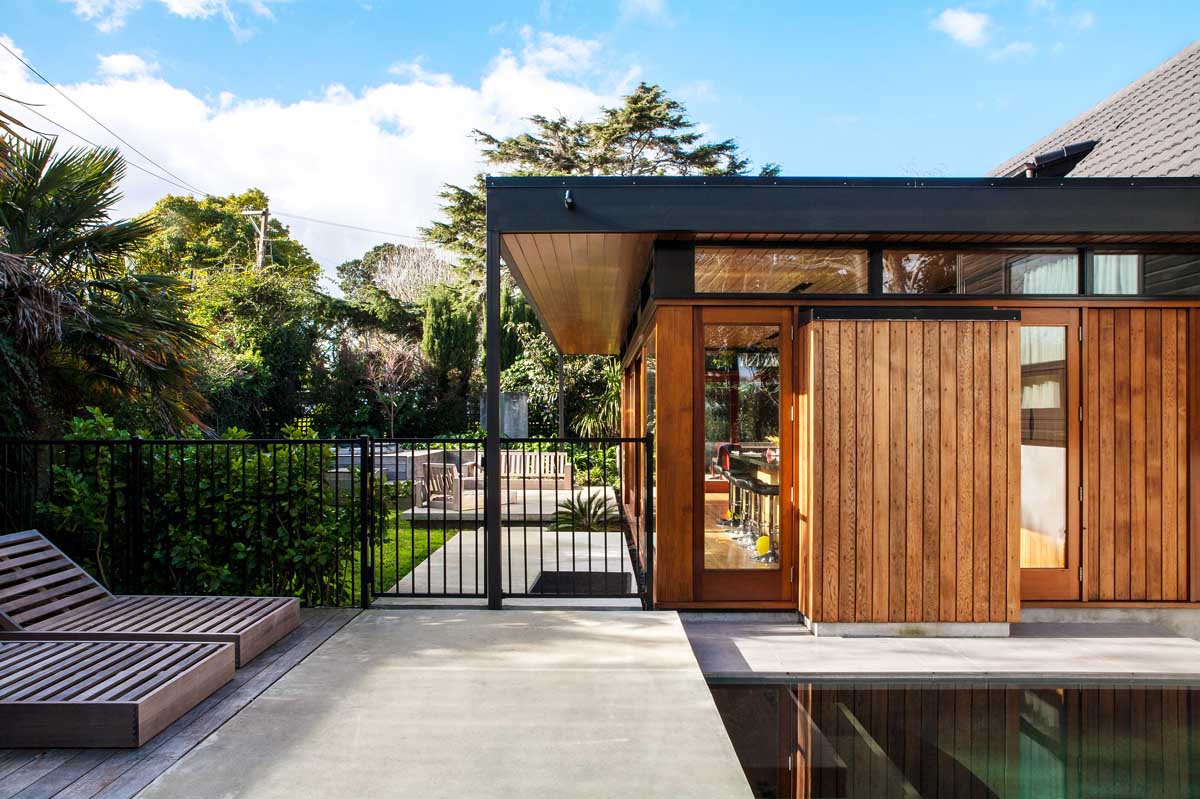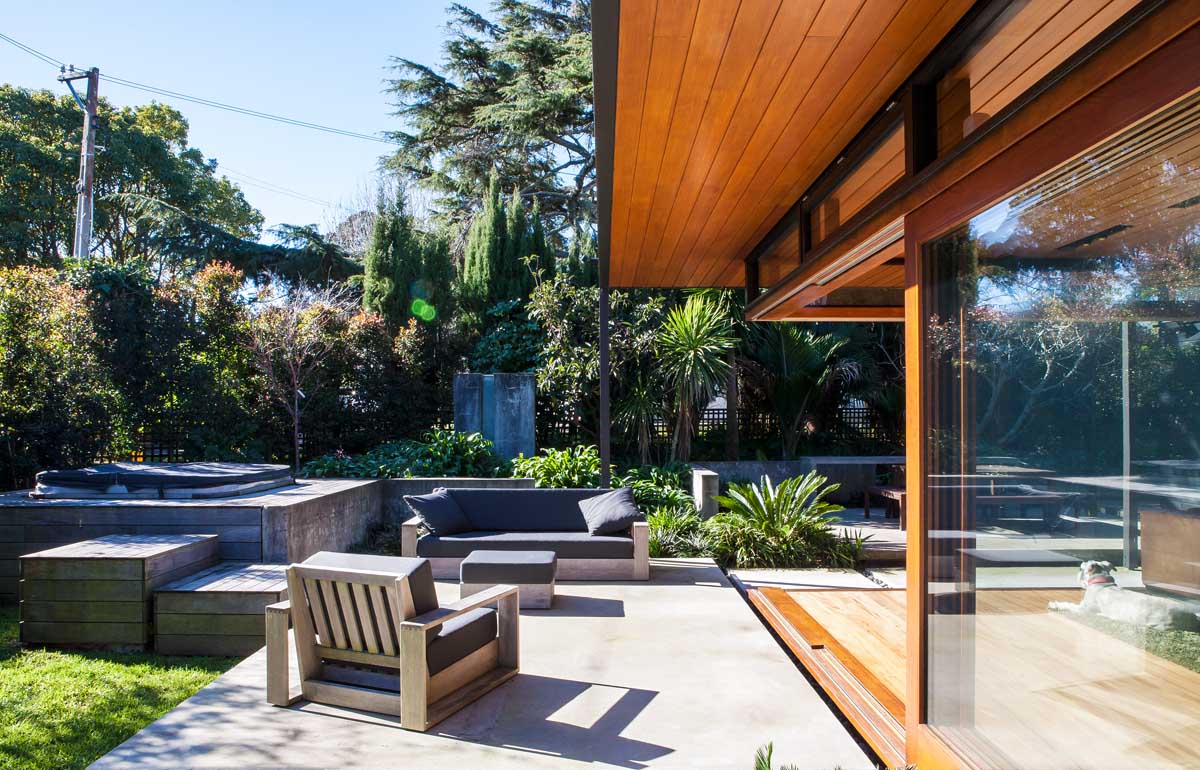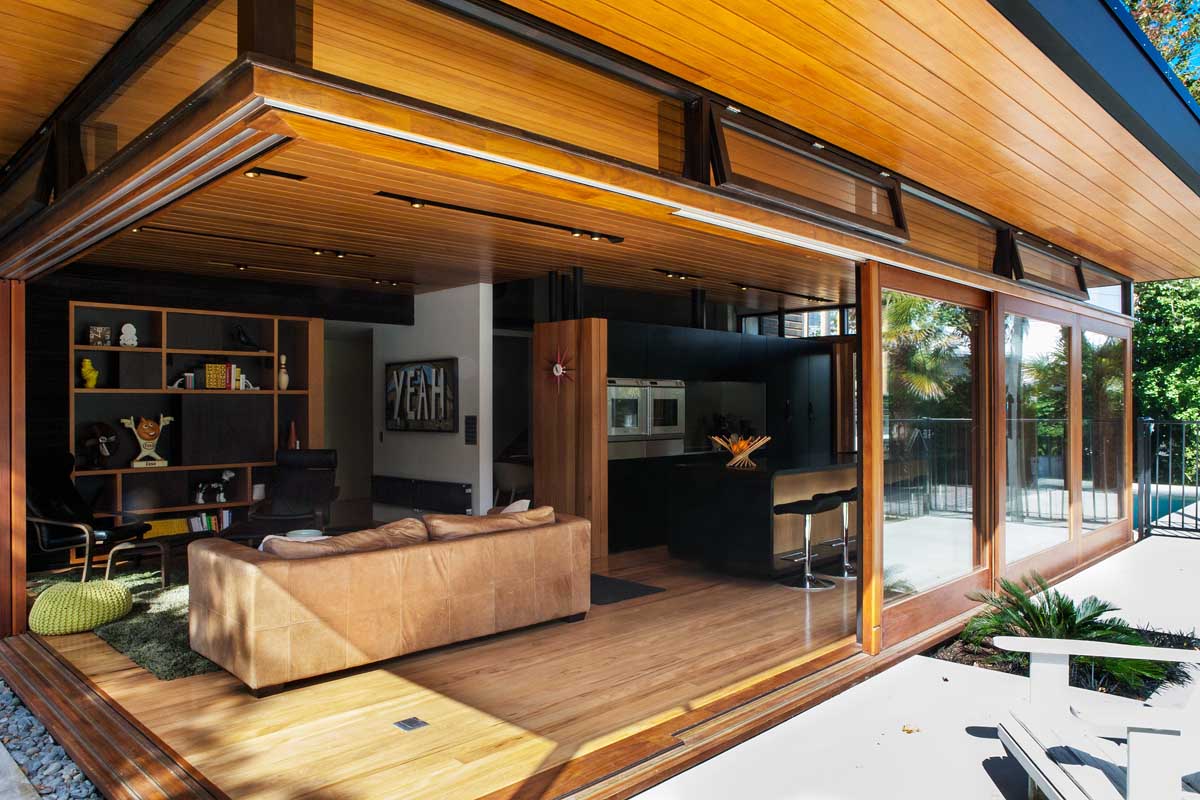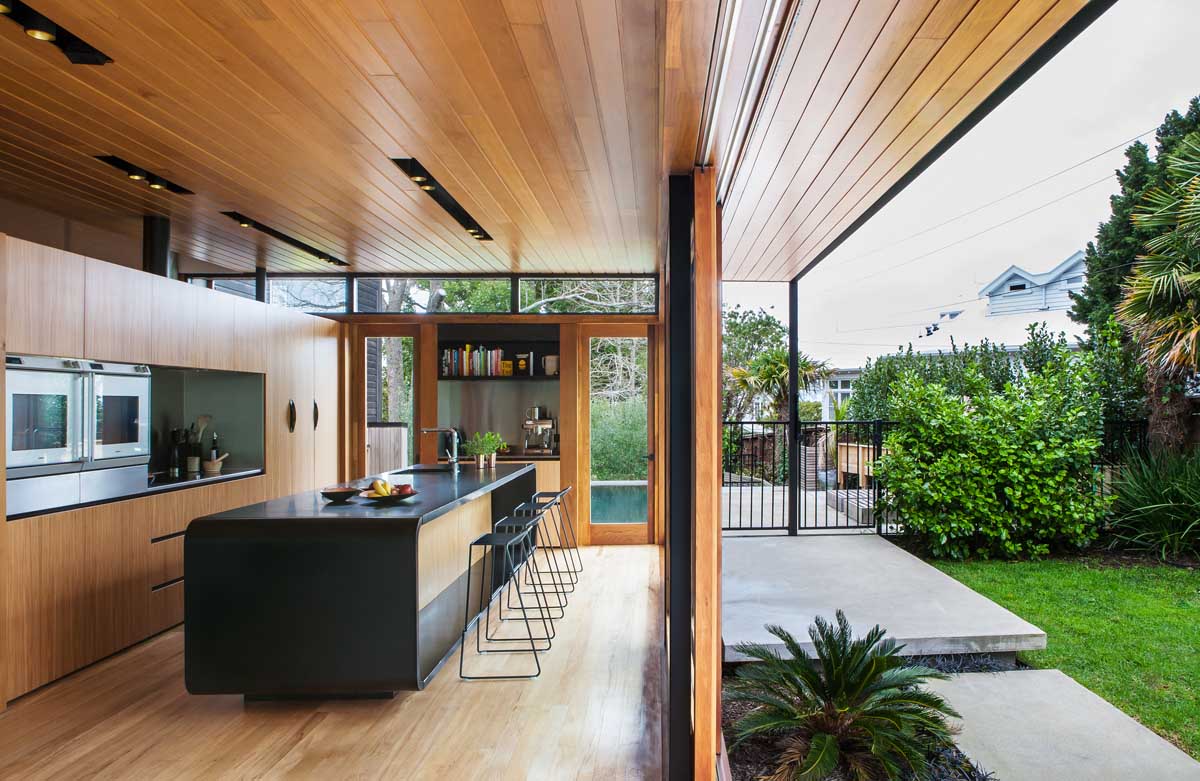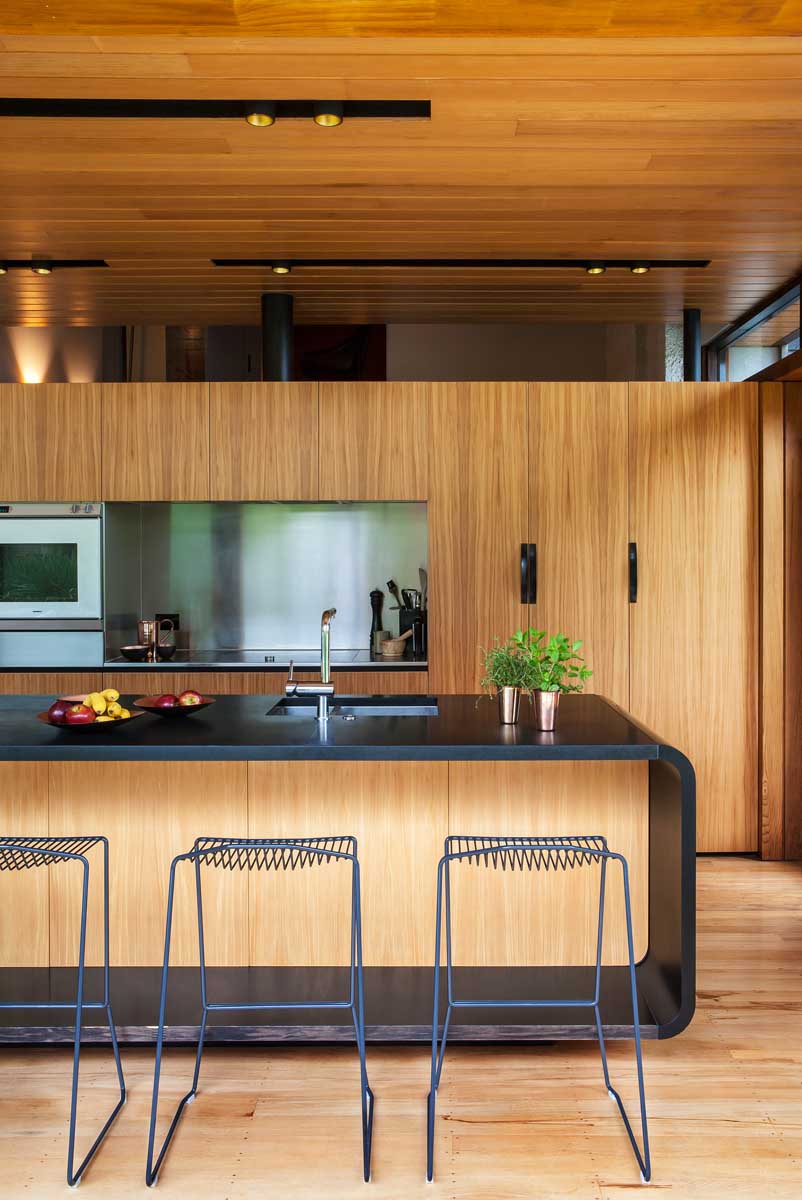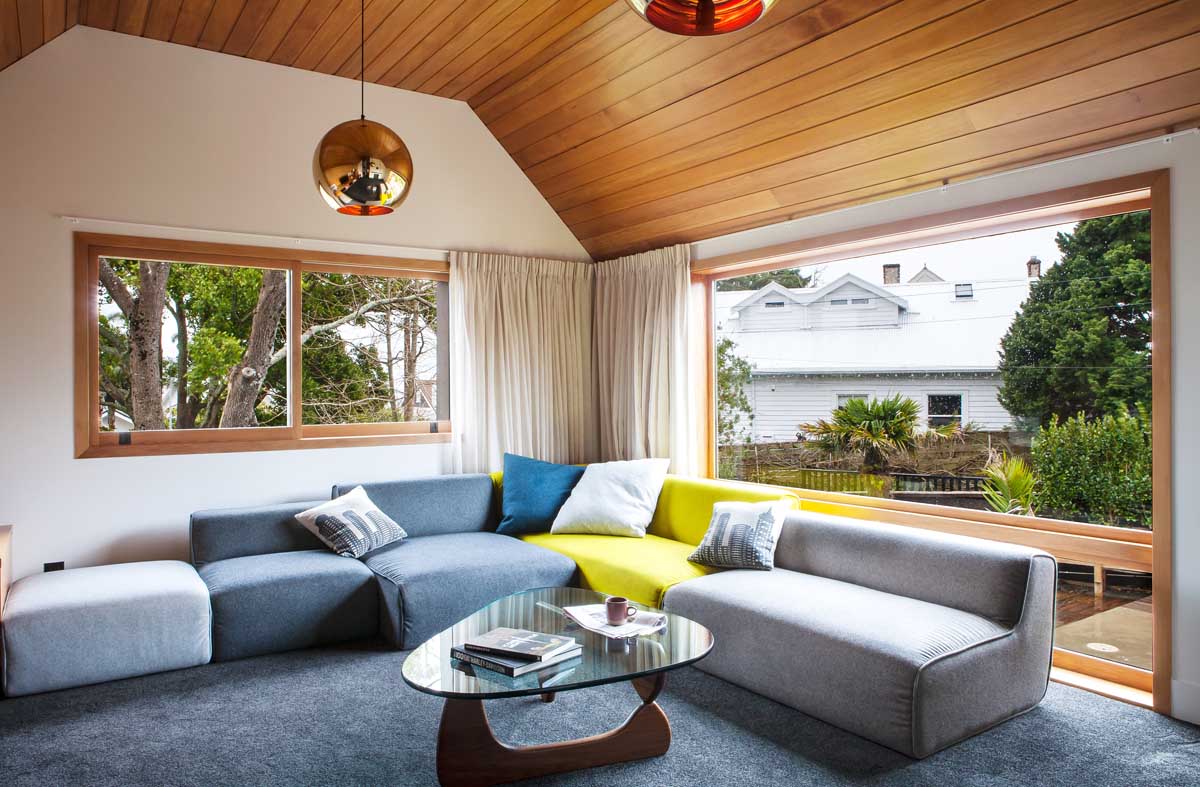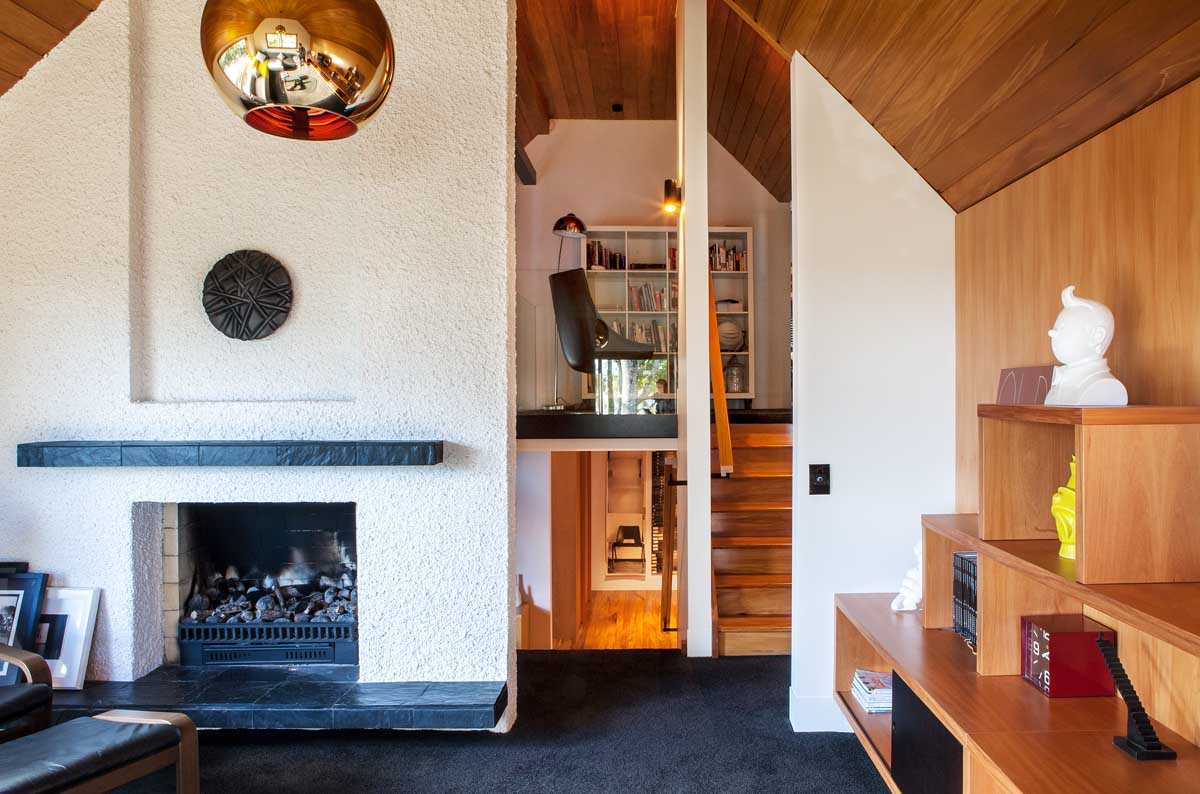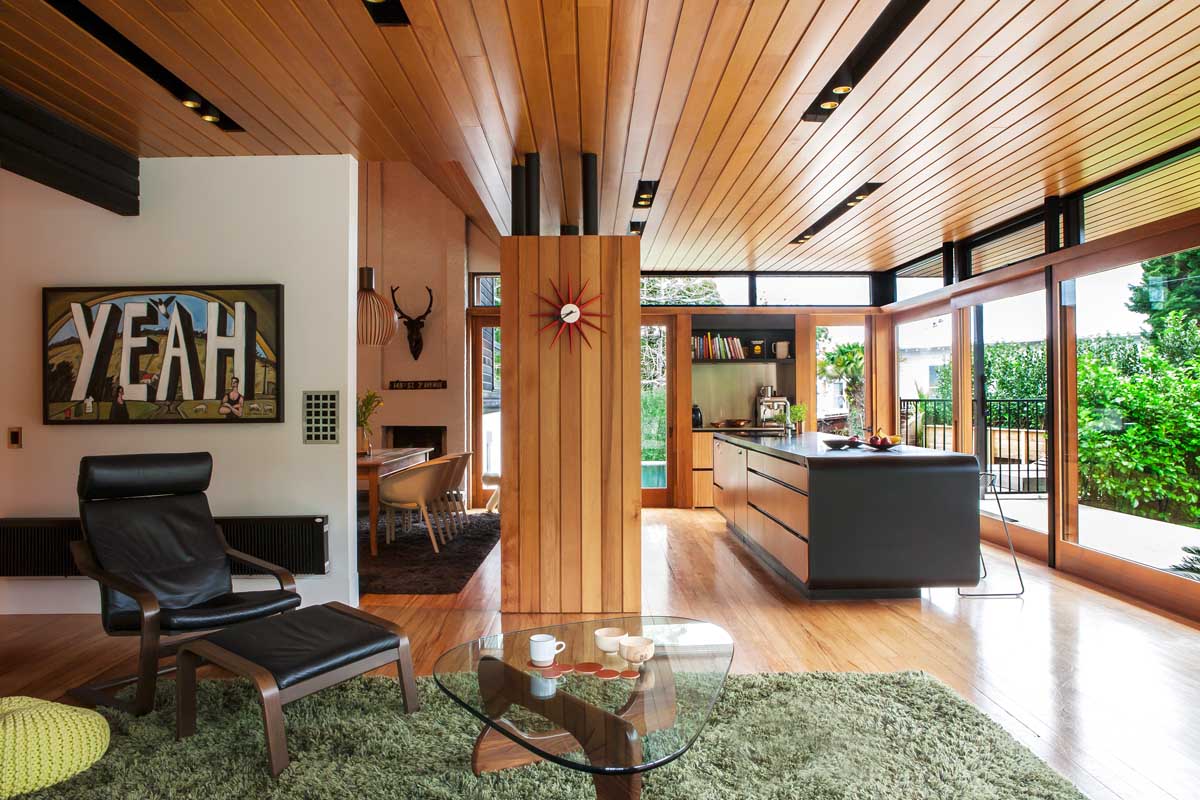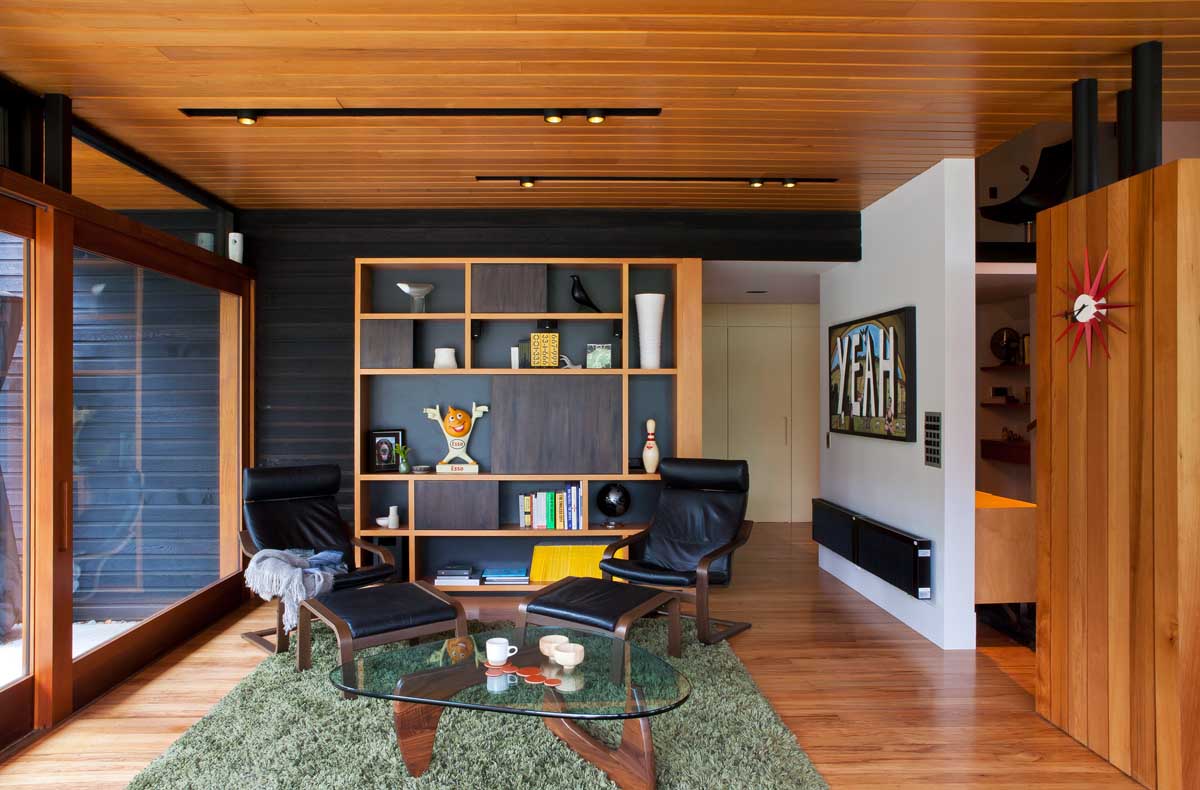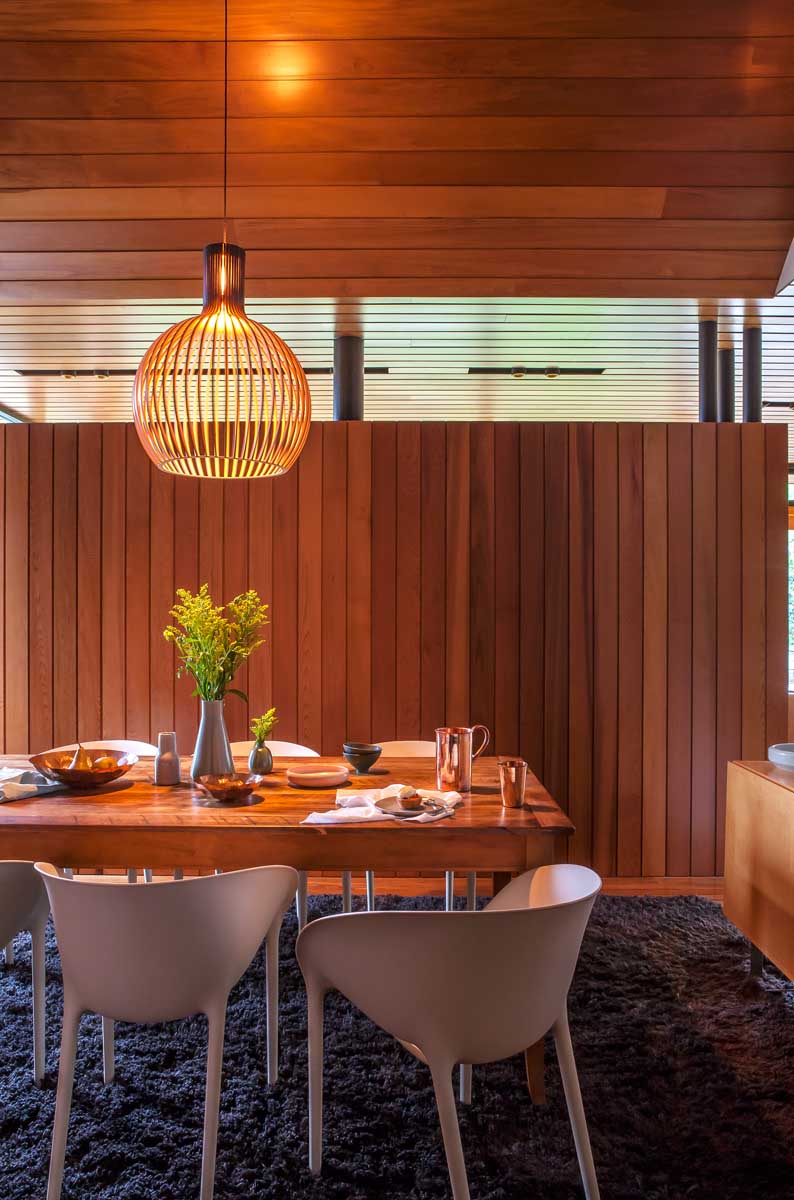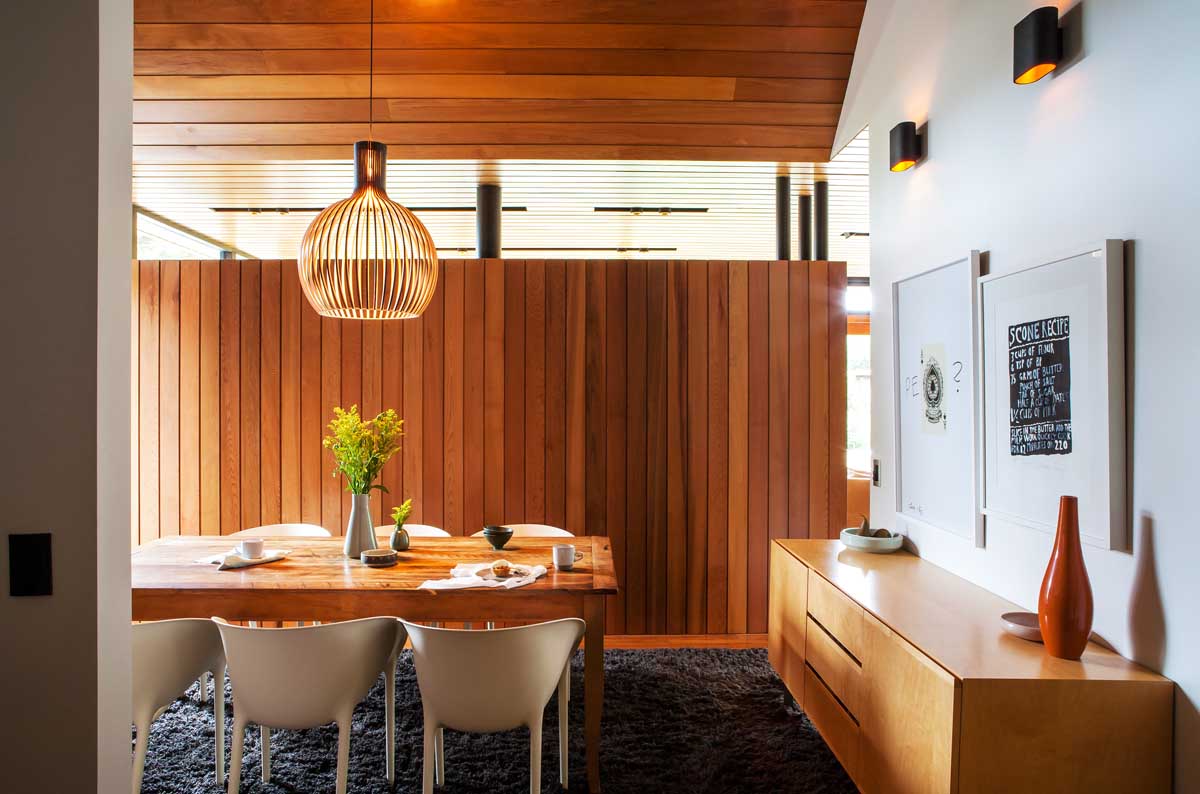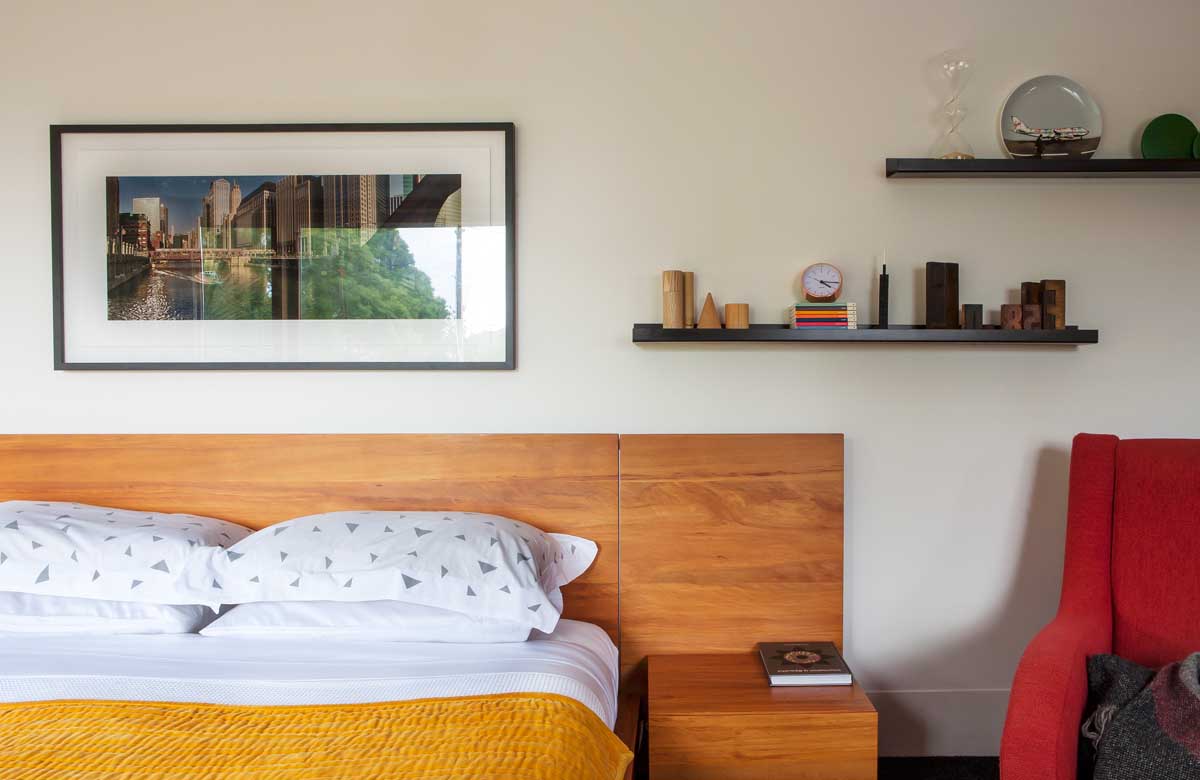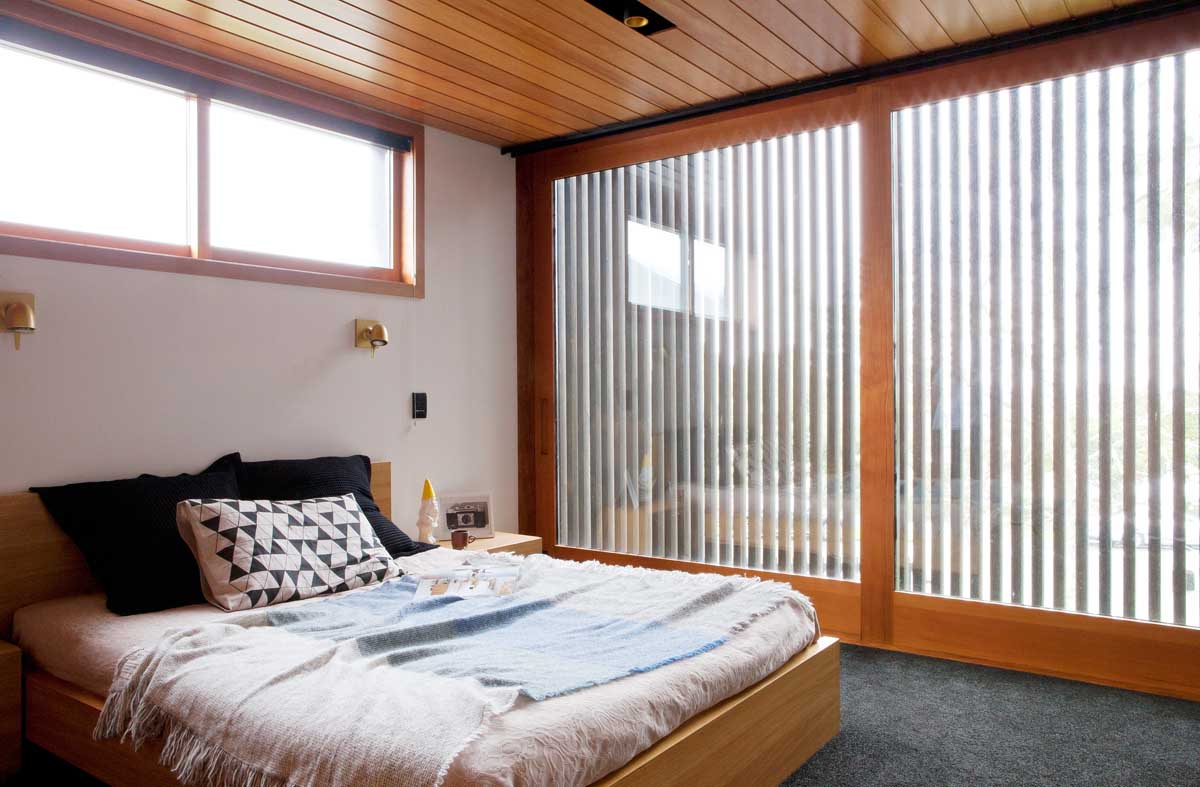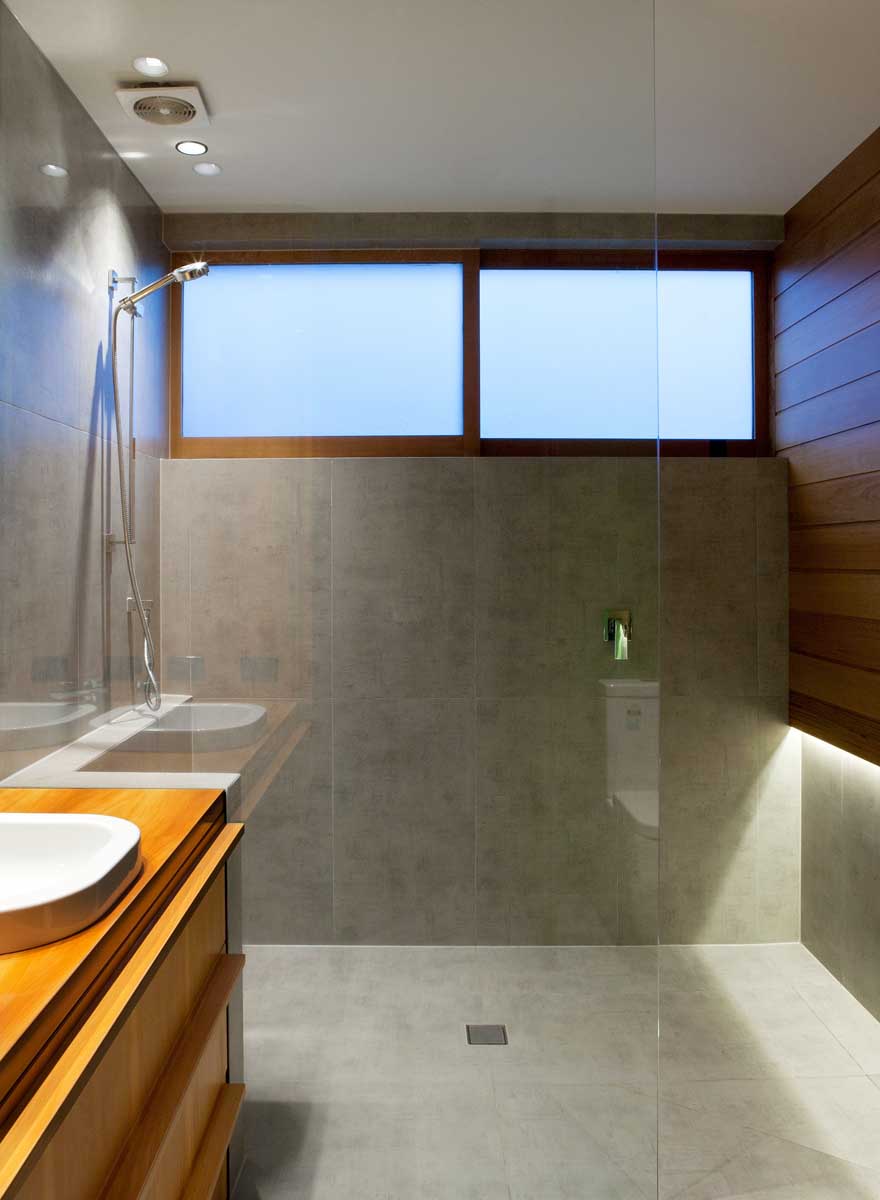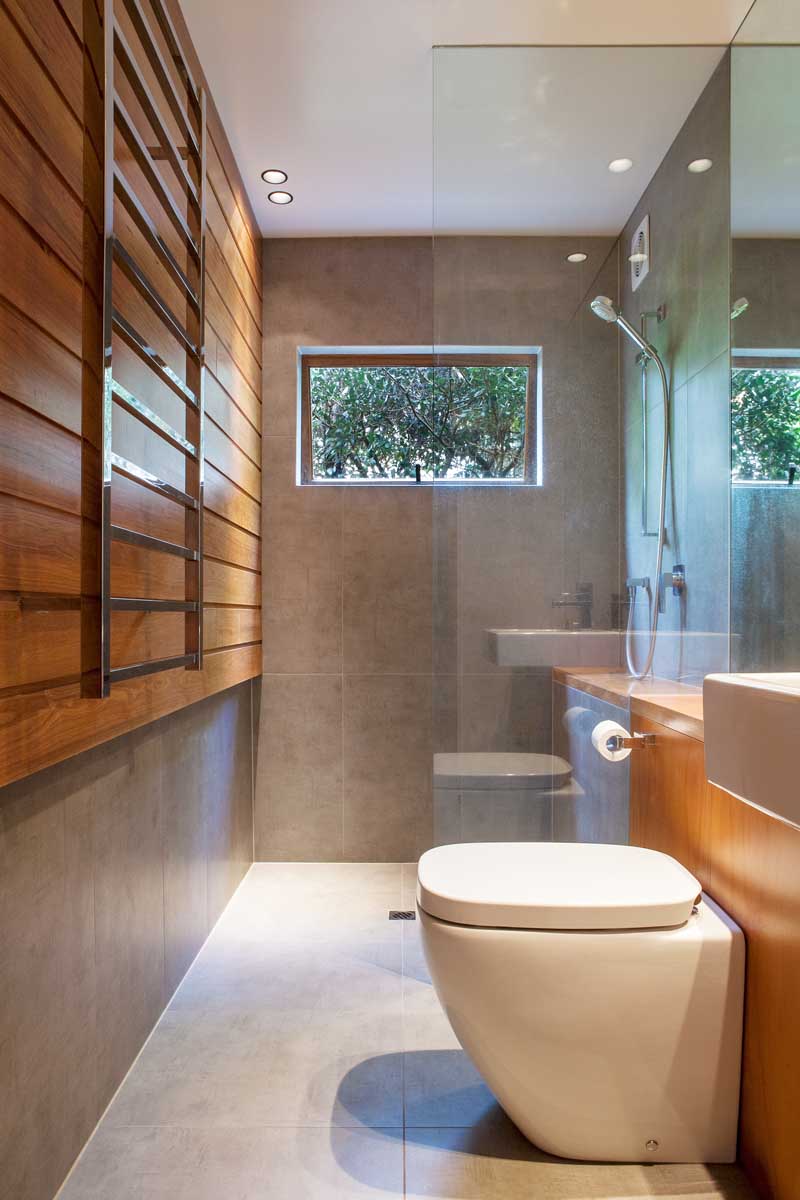Dorrington Atcheson Architects have designed the renovation of a 1970’s split-level home in Auckland, New Zealand.
Project description
Built in the 1970s, this cedar-clad home with its multi-gabled roof was typical of an era when split-level design was the height of architectural acuity. Undoubtedly, the layout possessed a certain labyrinthian appeal, but a warren of rooms was not conducive to easy family living.
Retaining the charm of the building along with some quality materials was integral to this extensive two-stage alteration. The aim was to make the spaces bigger, to tidy up the material palette and, externally, to re-present the overall mass and street appeal of the property.
In Stage One, the interiors were re-defined, and a pavilion that flows out from the central core beneath a new fold of the roof was added. This houses a kitchen, living area and, behind a three-quarter height room divider, a cosy dining nook – a nod to that 70s style. Sarked ceilings and tongue-and-groove walls emulate the linearity and warmth of those in the original home, while built-in furniture such as cabinetry, shelving units and a breakfast pantry that juts through the external wall, are designed as separate elements in the space.
Disguising the gables was an important part of the Stage Two process, a delicate balancing act between modernising the look, yet melding in with the colonial villas of the neighbourhood. A new two-storey box intersects with the main form of the home; it contains a bedroom and en suite, with a garage below. This cube is defined architecturally by fine cedar battening, an element that is repeated to hide the main gable over the upper storey of the dwelling. A playful material fluidity is seen in the garden fence which wraps its way behind the garage of the box to reappear as cladding on the ground level of the original home.
Design: Dorrington Atcheson Architects
Builder: Straight Line Building and Henry Dunham Building
Photography by Emma-Jane Hetherington
